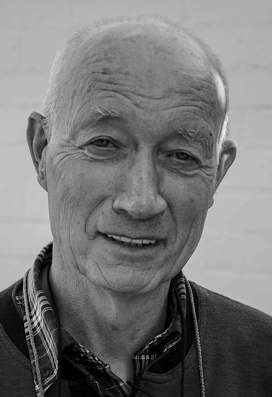Obituary - Prof. emeritus Klaus Apel

It is with profound sadness that we, current and former professors of the Institute of Molecular Plant Biology and Institute of Agricultural Sciences at the ETH-Zürich, have learnt the passing away of our esteemed colleague, Prof. Klaus Apel.
Klaus’ scientific career is exemplary in many respects, but it is probably his constant drive to develop and adapt tools/experimental models to bring his research to a frontier that best epitomizes his passionate stance to science. This started early on with his PhD work, conducted at the Max Planck Institute for Cell Biology in Wilhelmshaven, where he could demonstrate that some chloroplast proteins were under the influence of nuclear DNA. This rather novel concept at the time emerged mostly as a consequence of his choice to use the single-celled alga Acetabularia as a model, because nuclei can be swapped between the different species of the algae. A similar drive to conduct original research using cutting edge tools led Klaus to join Lawrence Bogorad’s laboratory at Harvard University where he was among the first to learn and use recombinant DNA techniques, the foundation of the then-budding field of plant molecular biology. He later used these techniques extensively, first at the University of Freiburg, to investigate phytochromes, and then as the Chair of botany at the University of Kiel, where he made important contributions to the understanding of flowering time, the toxicity of certain seed proteins, and senescence.
Nonetheless, Klaus felt the need, yet again, to learn more, explore new techniques and get his hands on a promising little weed, Arabidopsis thaliana, which a handful of researchers at the time - including Chris Somerville at Michigan State University - foresaw as a promising plant model system due to its small diploid genome, short life cycle and ease of growth. Returning to the USA, Klaus spent a year in Chris Somerville’s laboratory where he learnt to screen and isolate Arabidopsis mutants so that he could now answer many questions using the power and unbiased nature of forward genetics. When he took on his professorship at the ETHZ, a combination of molecular genetics and biochemistry allowed Klaus and his team to successfully identify several key mutations affecting plastid biology and chlorophyll synthesis, to clone the corresponding genes and to understand the functions of the encoded proteins. While screening for other interesting mutants, he identified the flu mutant which accumulates protochlorophyllide in the dark and releases a burst of singlet oxygen when going from darkness into bright light/ This sparked his continued interest in the topic up to his retirement.
Klaus retired from his professorial activities at the ETH-Zürich in the spring of 2008 to embark on a second career at the Boyce Thompson Institute (BTI) in Cornell, USA. There, he could pursue some of the important remaining questions that had emerged from his high profile research at the ETHZ. He focused, in particular, on retrograde signalling - the process whereby the plastid’s functional state enables de novo synthesis of nuclear-encoded proteins required for chloroplast development and integrity. A second fascinating aspect of Klaus’ latest research was the role of singlet oxygen as a signalling molecule in chloroplast repair following oxidative stress caused by excess light. Klaus’ laboratory elegantly contributed to establish this signalling function, both genetically and biochemically, against the general assumption that this form of reactive oxygen is simply a toxic by-product damaging cells. Klaus retired from BTI in September 2016 with the satisfaction of having addressed his core scientific questions, an achievement incarnated by a final and inspiring paper published the same year in the Proceedings of the National Academy of Sciences. Klaus had decided, from then on, to spend well-deserved time with his family back in Europe where plenty of bird watching, one of his favourite hobbies, was on the menu.
Klaus will remain a great inspiration to his colleagues and the many students he has trained over nearly five decades of a scientific career during which his utter yet humble dedication to meticulously dissect highly complex biological processes never ceased to draw immense respect from his peers. Klaus will be greatly missed by his family, his friends and us, his colleagues, but his scientific legacy will continue to shine through, for a very long time.